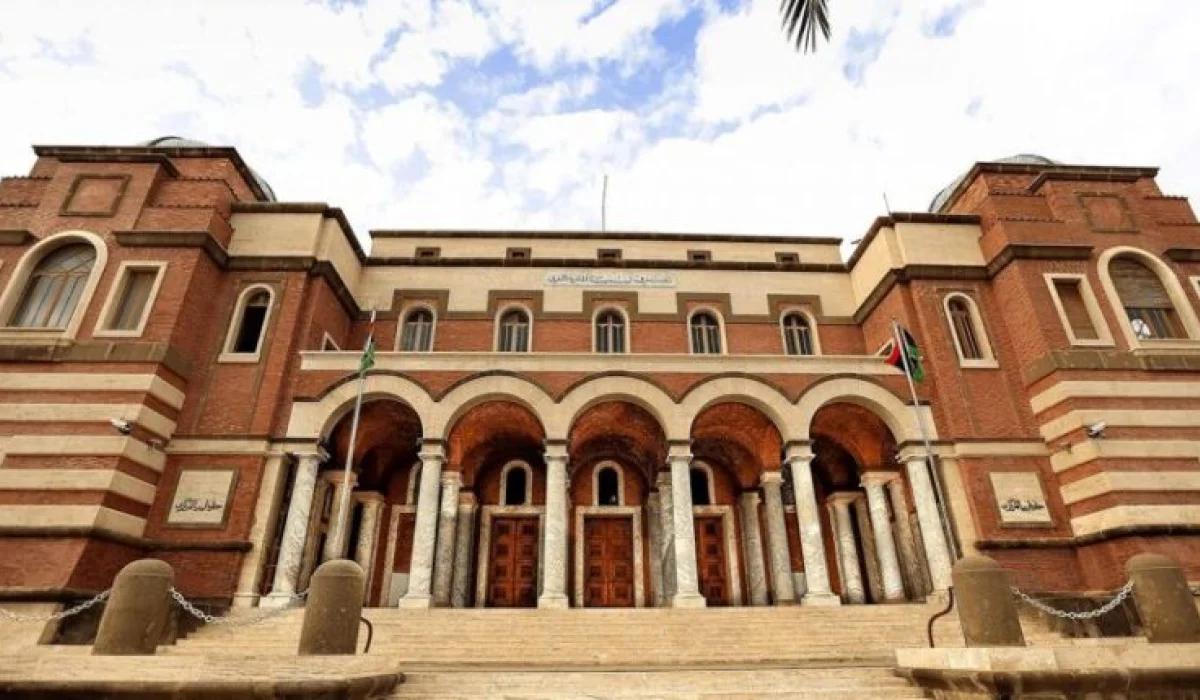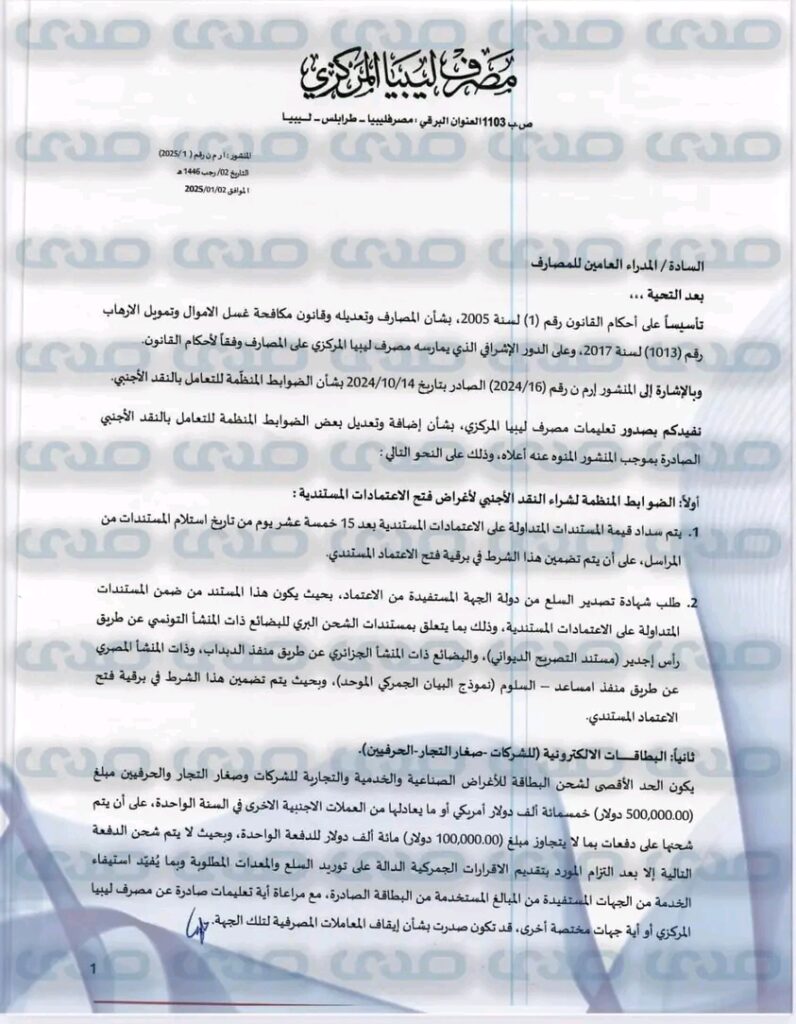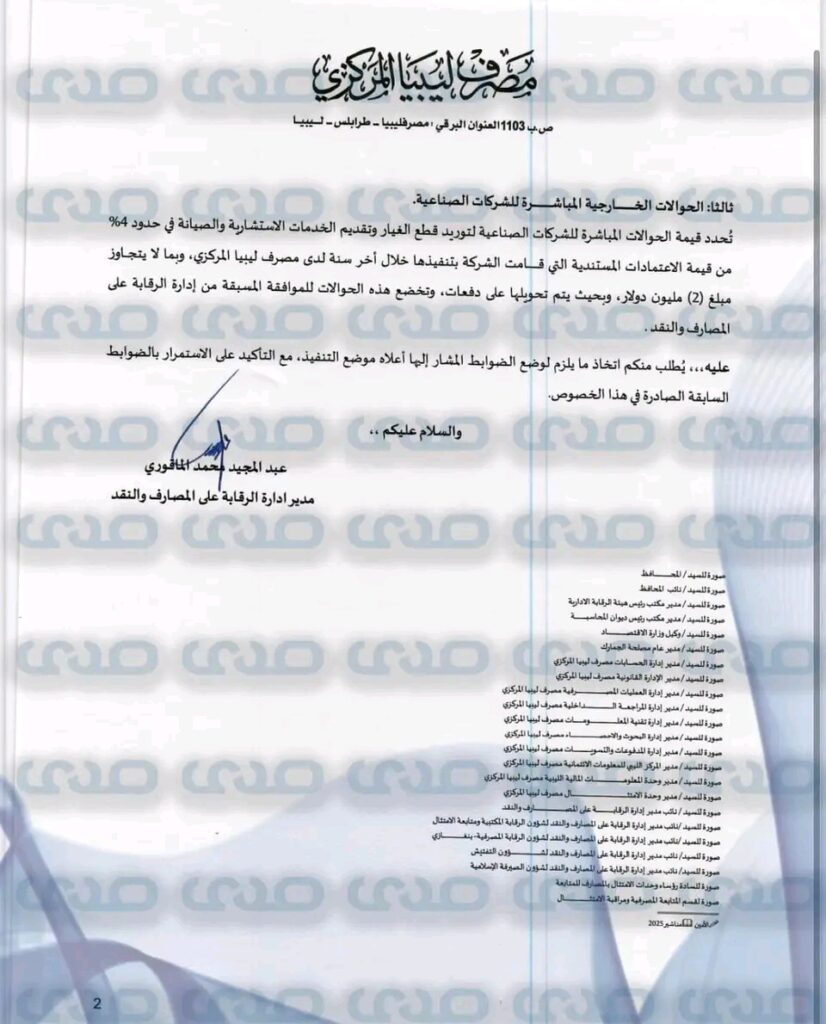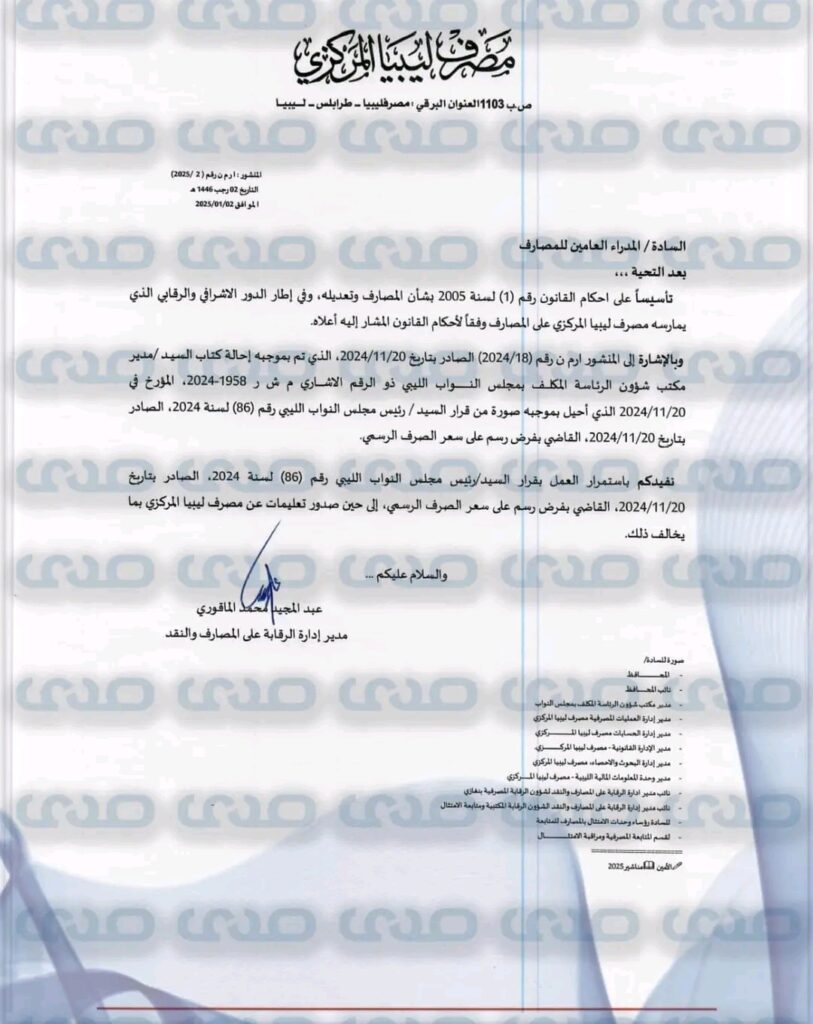
| News
Exclusive: With the Continuation of the Imposed Tax, the Central Bank Issues Regulations for Resuming Foreign Exchange Sales Using the Same Previous Mechanism
Our source has obtained a correspondence from the Director of the Banking Supervision and Control Department at the Central Bank of Libya to the general managers of banks. The correspondence concerns the addition and amendment of certain regulations governing foreign exchange transactions as outlined in the referenced circular. These regulations address the purchase of foreign exchange for various purposes and the opening of letters of credit. Payment for documents exchanged with the correspondent bank is to be made within 15 days of receiving the documents. This condition must be included in the telegram initiating the letter of credit.
Additionally, a certificate of goods export from the country of the beneficiary must be included as part of the exchanged documents for letters of credit. This applies specifically to land-shipped goods of Tunisian origin through Ras Ajdir (customs declaration document), Algerian-origin goods through the Dehiba border crossing, and Egyptian-origin goods through the Emsaad–Saloum crossing (standardized customs declaration form). This condition is also to be included in the telegram initiating the letter of credit.
Moreover, regulations concerning electronic cards for companies, small traders, and artisans stipulate a maximum annual loading limit of $500,000 or its equivalent in other foreign currencies. This amount is to be loaded in installments, with no single installment exceeding $100,000. Subsequent installments may only be loaded after suppliers provide customs declarations verifying the import of the required goods and equipment, along with evidence of service completion by the entities benefiting from the amounts loaded onto the issued card. Compliance with any instructions from the Central Bank or other relevant authorities regarding suspended banking transactions for specific entities must also be ensured.
For direct external transfers for industrial companies, the maximum amount is set at 4% of the value of the letters of credit executed by the company during the previous year at the Central Bank of Libya, up to a limit of $2 million. These transfers must be made in installments and require prior approval from the Banking Supervision and Control Department.
The circular emphasized the implementation of the aforementioned regulations while maintaining adherence to previously issued controls in this regard.
Furthermore, the Central Bank clarified the continuation of the decision by the Speaker of the Libyan House of Representatives, No. 86 of 2024, issued on November 20, 2024, which imposes a levy on the official exchange rate until contrary instructions are issued by the Central Bank.








